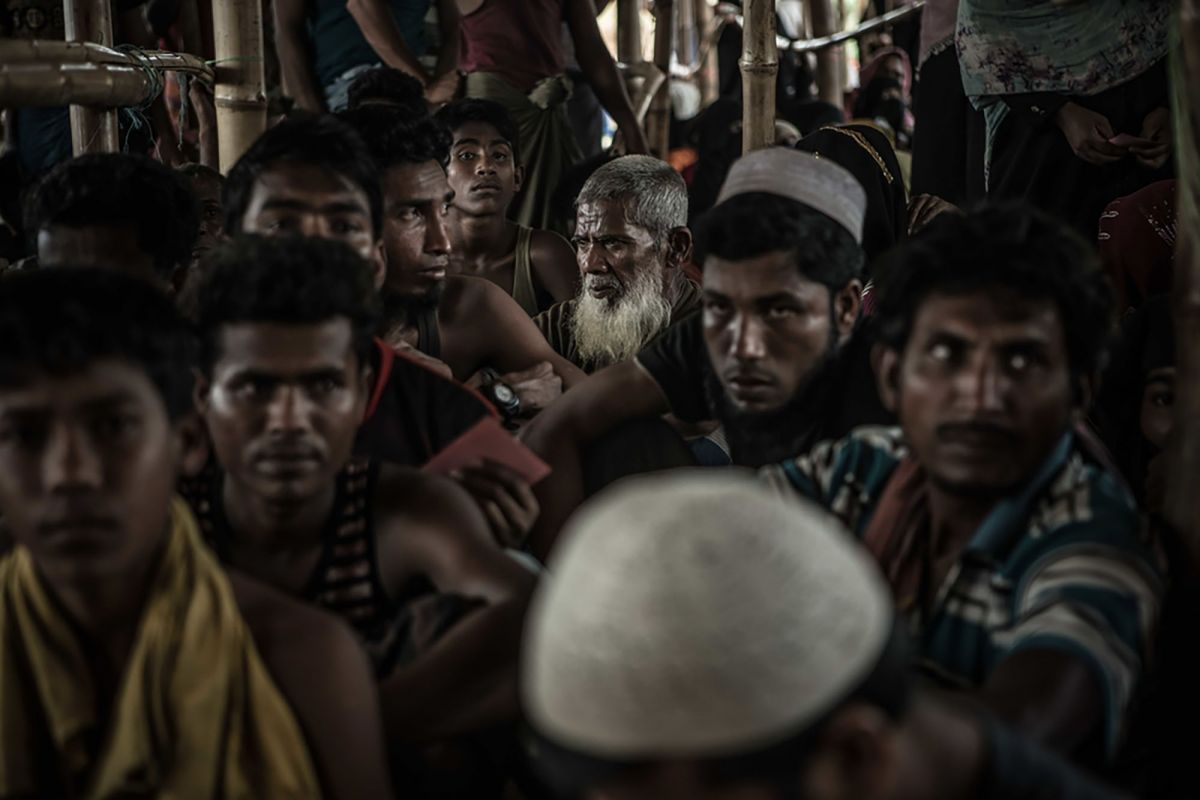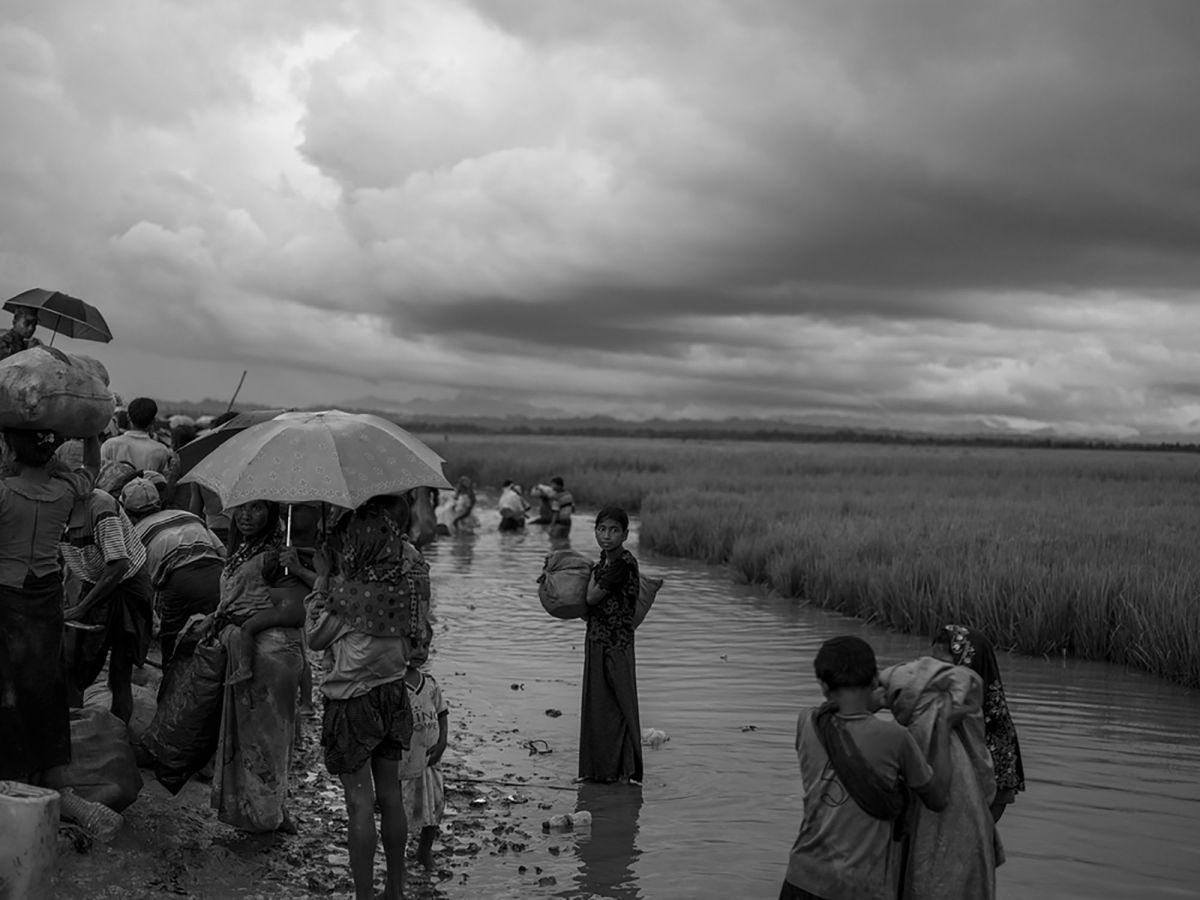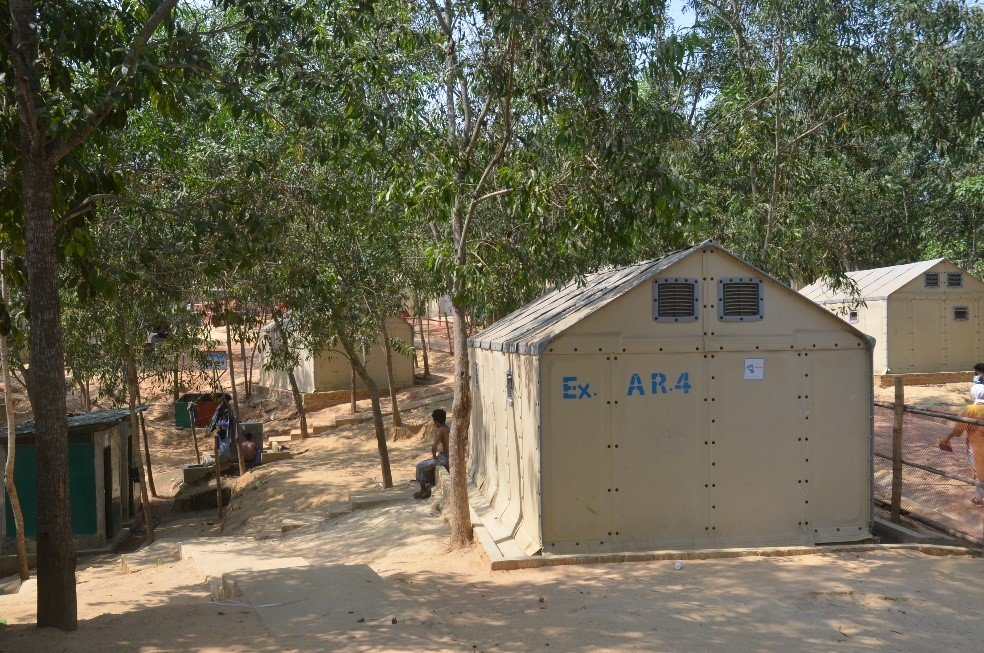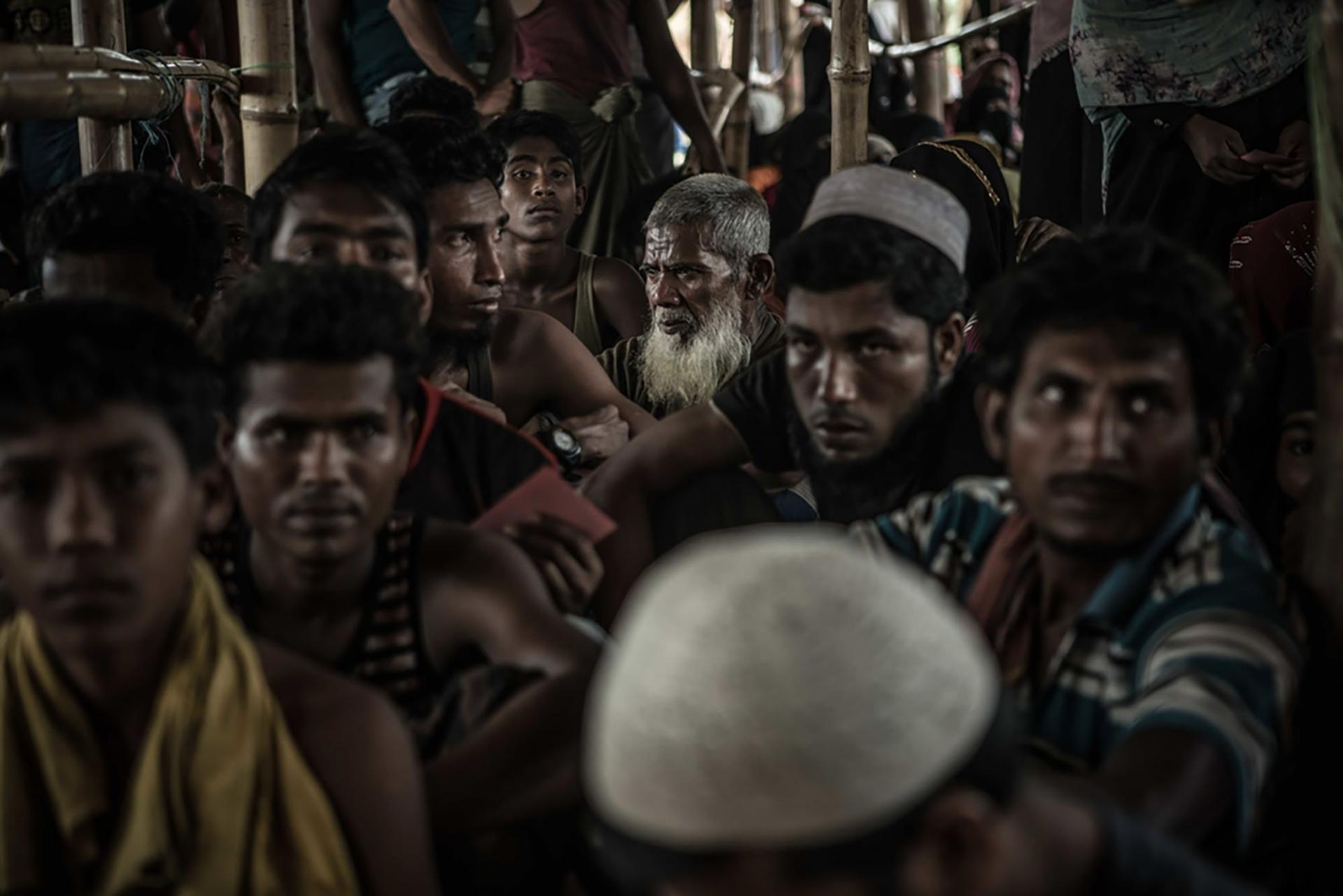Loaded like human cargo into a wooden fishing trawler, around 500 people attempting to reach Malaysia from refugee camps in Bangladesh were starved and beaten by people smugglers during a two-month voyage. All of the passengers were ethnic Rohingyas from Myanmar, and most were aged between 12 and 20 though there were also some young children. Denied permission to land in Malaysia, the 400 or so survivors were eventually rescued on 15 April by the Bangladeshi coastguard.
Amina*, a 14-year-old Rohingya girl from a small market town in western Myanmar, describes sitting on deck under the burning sun with hundreds of people for over two months. “We had to sit like this,” she says, hugging her knees to her chest. “People’s legs swelled and got paralysed. Some died and were thrown into the sea. We were adrift at sea with people dying every day. We feel like we’ve been taken from hell.”

The refugees say they were beaten at the slightest provocation and given minimal food and water. “It was extremely hot and there was no food, no water,” says Amina. “We got one handful of dal and one capful of water per day.” Other survivors say they often received no food or water at all for days at a time. Desperately thirsty, many people resorted to drinking seawater.
Every day people died, say the survivors, who estimate that around 100 people died onboard or were thrown overboard by the smugglers. No-one knows exactly how many died.
All the passengers on the boat believed that they were heading towards a brighter future and better prospects for themselves and their families, including work and marriage. Persecuted and denied citizenship by Myanmar authorities and unable to return to their homes in Myanmar, hundreds of thousands of Rohingya now languish in overcrowded refugee camps in Bangladesh, desperate for a way out. Survivors describe how their families had pooled their savings to pay huge sums to the people smugglers.

After arriving in Malaysian waters, survivors say, the smugglers forced them to call their families in Bangladesh to say they had arrived safely and to ask them to transfer payment for the passage. The boat was denied permission to land in Malaysia, or in any other location, and eventually turned back towards Bangladesh. Some days before reaching Bangladesh, most of the smugglers abandoned the boat and its starving passengers.
After receiving reports that the vessel was drifting off Bangladesh’s southern coast, the Bangladeshi coastguard rescued the 400 or so remaining survivors. They are receiving care and will be quarantined for 14 days before being returned to their families.
MSF sent teams of medical and mental health specialists to support the rescue and provide emergency care to the emaciated survivors as they arrived back in Bangladesh.
“Many of them couldn’t stand or walk on their own,” says Hanadi Katerji, MSF nurse and medical team leader. “They were just skin and bone – a lot of them were barely alive.”
MSF medics stabilised those who were acutely unwell and referred five people to MSF hospitals for malnutrition with severe complications and other conditions. MSF mental health teams provided counselling to the survivors.

“People were really malnourished, dehydrated and obviously overwhelmed,” says Hanadi. “Some people had this look in their eyes, I’ll never forget it: they looked so scared. Some of the men had quite severe wounds, which weren’t healing, probably because of the malnutrition. Many of them had scars on their bodies; many reported being beaten by the crew on the boat.”
“Mostly people were stressed and really traumatised, frightened, uncertain. People were grieving for lost family members, and there were children who had lost their parents,” says Hanadi.
Denied citizenship by Myanmar, the minority Rohingya people have suffered decades of persecution and abuse by Myanmar authorities. In 2017, a campaign of targeted violence against the Rohingya by the Myanmar military forced over 700,000 people to flee into neighbouring Bangladesh. But almost three years on, there are still no solutions in sight.
“The boat crew told us: ‘Everywhere you’re a refugee,’” says Amina. “’In Myanmar, you’re a refugee, in Bangladesh, you’re a refugee, in the boat and in Malaysia too you’re considered a refugee. You will die wherever you go.’”
Reports received by MSF suggest that there are still three more boats at sea, carrying more than 1,000 people.
*pseudonym
By Daniella Ritzau-Reid, communications manager of MSF in Bangladesh
